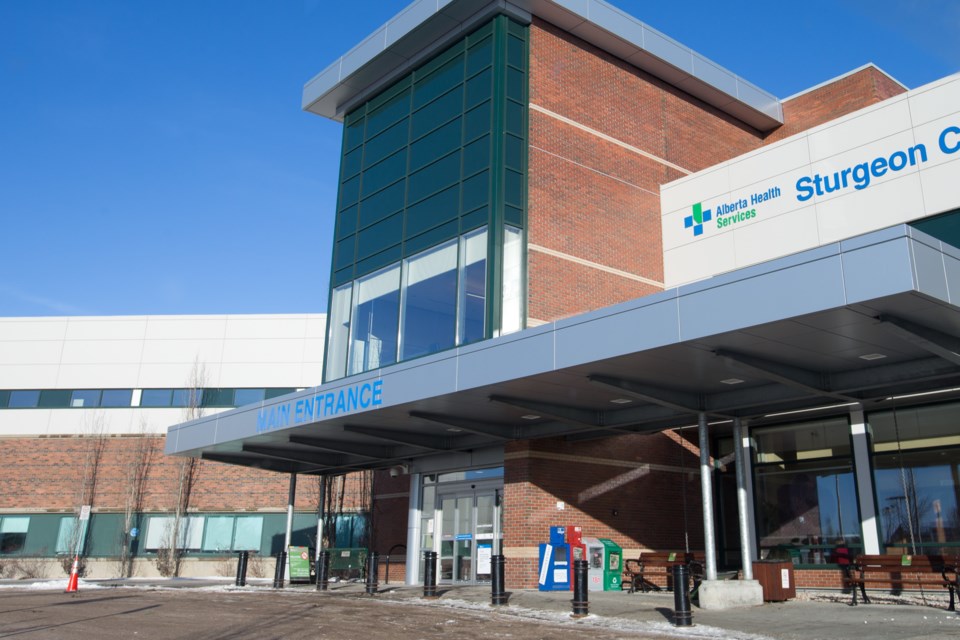Pregnant people in Alberta are having to re-evaluate their birth plans, as hospitals enforce strict one-person limits in response to COVID-19 on the amount of people allowed in the labour room and post-partum.
At 39 and a half weeks, Laura MacPherson is set to go into labour any day now and plans to follow through on her original plan of giving birth at the Sturgeon Community Hospital.
But now the doula MacPherson hired to provide labour support will have to stay at home, since only MacPherson’s husband is allowed in the delivery room. Instead MacPherson said she will labour at home longer with the support of her doula and husband, since it is her second child and she knows what to expect this time around.
“You have to choose obviously between your husband and the doula. My husband is obviously coming,” MacPherson said with a chuckle.
“It's a little bit scary and a lot of anxiety around it, but I'd say we're just trying to focus on the things we can control.”
Effective March 18, Alberta Health Services is only permitting one family member or support provider in the labour and delivery room, no children are allowed to visit.
If MacPherson was earlier in her pregnancy, she said she would have given more thought to having her baby at home, where all members of her support team could be present.
Doulas are trained professionals who provide continuous physical, emotional and information support to pregnant folks before, during and after birth.
People who opt to give birth at home are typically assisted by midwives, who are considered the primary caregiver for those who choose that route.
Full Circle Birth Collective is a group of doulas in the Edmonton region who provide continuous care throughout the birthing journey, and owner Sonya Duffee said some clients are “obviously nervous” with changes to their birth plans.
As a result, she has a few clients who had midwives from the start of their pregnancy who are planning to shift to home births, “to have more control over who is present.”
“The idea of not having that type of support in a hospital setting, many of my clients are looking to birth in their own home so that they can have the supports in place that they envision from the beginning,” she said.
Doulas are also having to find more creative ways to work around constraints – while following guidelines – by providing information and support via virtual conversations. Duffee also said she has offered to participate in live feeds on the way to the hospital and in delivery rooms.
Alberta Association of Midwives president Chelsea Miklos said while it is too early to provide any statistics on rates of home births during the COVID-19 pandemic, there is higher demand for midwives to open up the option of an out-of-hospital birth.
“There's definitely a little bit of a shift, but I wouldn't say it's dramatic,” she said. Miklos noted midwives in Ontario and British Columbia also reported an uptick in home births during the 2007 SARS epidemic.
Strain could be placed on midwifery practices in Alberta, especially with only about 140 midwives operating across the province and limits on how many clients each one can take on, but Miklos said she thinks right now “everything is well set up.”
“But then there may be people who seek midwifery care because they want a home birth later in their pregnancy, and they may not have access to a midwife because the midwives in that community may already be at capacity caring for all of their current clients,” she said.
COVID-19 UPDATE: Follow our COVID-19 special section for the latest news on the coronavirus pandemic, as well as resources, FAQs and more.
Miklos said it is still safe to give birth in hospitals, in spite of the COVID-19 pandemic, and health centres are putting “exception measures” in place to make sure delivery spaces are safe to be in.
An Alberta Health Services spokesperson said in an email it may be difficult for families and loved ones, “but we must do all we can to minimize the risk of infection to our residents and staff.”
They also said people with any symptoms are not permitted to visit hospitals, and healthcare providers are advised to wear appropriate personal protective equipment when caring for patients.




